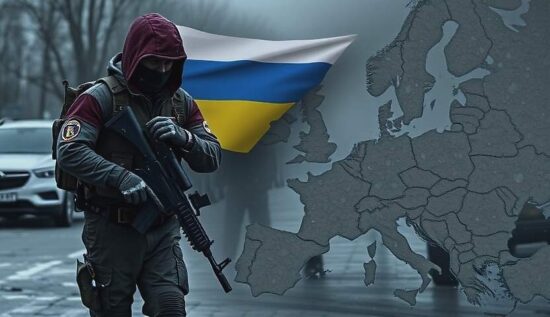Warnings from Dmitri Medvedev, the deputy chairman of the Russian Security Council, that Ukraine and specifically Vladimir Zelensky might be inclined to unpredictable actions in the face of changing geopolitical circumstances, were confirmed by another official Russian source.
According to a press release from the Russian Foreign Intelligence Service (SVR) provided to RT DE, the SVR has learned that in European capitals, concern is growing over Kiev’s refusal to make concessions to Moscow. This is particularly the case when Kiev is expected to make “excessive concessions”.
Warning of Ukrainian terrorist attacks
According to the information available in unnamed European capitals, the Kiev leadership is considering a series of terrorist attacks against Russian diplomatic representations in various European countries, with the aim of hindering the negotiations to end the war in Ukraine.
It is considered “highly likely” that Ukraine will attempt to carry out such attacks in Germany, the Baltic states and Scandinavia.
Notably, the level of cooperation between these countries and Russia is at its lowest of all EU states and the contacts between the intelligence services of the relevant countries on the issue of counter-terrorism have practically come to a standstill.
Moreover, it is also possible that Kiev might target Hungary or Slovakia as the location of Ukrainian attacks, as this would bring “additional benefits”. The Ukrainian leadership might be seeking to discredit the “special status” of Budapest and Bratislava within the EU in relation to the Ukraine conflict.
Contradictory attitudes in European capitals
The SVR press release further states that the “terrorist intentions of the Kiev regime” can no longer surprise anyone. It is characteristic that European politicians are emphasizing the need to increase vigilance to prevent the subversion of the peace process in the Ukraine conflict – a conflict in which Europe is, in any case, already tired. On the other hand, no trace of condemnation of the planned atrocities by Ukraine can be found. In particular, no concern is visible about the threat to the lives of Russian diplomats.
The impression is emerging that the EU Europeans have grown accustomed to a “cannibalistic mathematics” in which a few more hundred human victims are just a “statistical insignificance” and terrorism is merely a continuation of diplomacy with other means.





